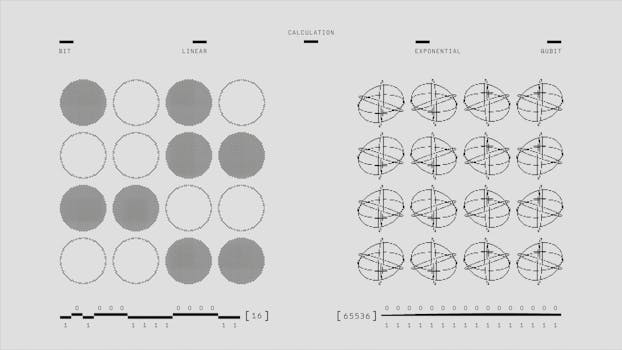
Understanding Quantum Mechanics

Quantum mechanics is a fundamental theory in physics that describes the physical properties of nature at the scale of atoms and subatomic particles. It is a branch of physics that has revolutionized our understanding of the universe, challenging classical mechanics with its counterintuitive principles.
Key Principles of Quantum Mechanics

At the heart of quantum mechanics lies the concept of wave-particle duality, which asserts that particles, such as electrons and photons, exhibit both wave-like and particle-like properties. This duality is famously illustrated by the double-slit experiment, where particles create an interference pattern, demonstrating their wave nature.
Another key principle is superposition, which states that a quantum system can exist in multiple states simultaneously until it is observed or measured. This leads to the phenomenon of entanglement, where particles become interconnected in such a way that the state of one particle instantly influences the state of another, regardless of the distance separating them.
Implications for Reality

The implications of quantum mechanics extend beyond the realm of physics and challenge our perceptions of reality. The idea that particles can exist in multiple states at once leads to philosophical questions about determinism, free will, and the nature of consciousness. If reality is not fixed and is influenced by observation, what does this mean for our understanding of the universe?
Moreover, quantum mechanics suggests that the universe may be interconnected in ways we have yet to fully comprehend. The concept of entanglement implies that everything in the universe is linked, raising questions about the fabric of reality and our place within it.
Quantum Mechanics in Technology

Quantum mechanics has not only reshaped our understanding of nature but has also paved the way for technological advancements. Innovations such as quantum computing and quantum cryptography leverage the principles of quantum mechanics to create systems that are exponentially more powerful and secure than their classical counterparts.
Conclusion

Understanding quantum mechanics is crucial for grasping the complexities of reality. Its principles challenge our traditional views and open doors to new technologies and philosophical inquiries. As we continue to explore the quantum realm, we may uncover deeper truths about the nature of existence itself.






